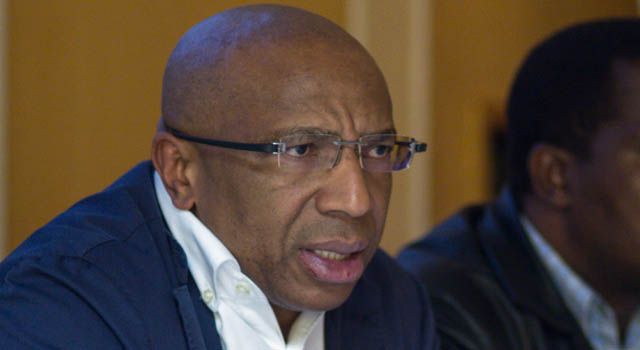
Telkom CEO Sipho Maseko has blasted his rivals at Vodacom and MTN, Shameel Joosub and Zunaid Bulbulia, accusing them of “standing in the way of South Africa’s future” by taking communications regulator Icasa to court over mobile termination rates.
In an open letter to the Vodacom and MTN CEOs, Maseko says: “Today, we stand at a crossroads – you can hide behind regulations to protect profits, or we can all continue to expand access and lower costs. We have been following your public statements very closely, and believe your recent actions fall short of what we can do to move the country forward.”
The letter, clearly designed to ratchet up pressure on the two big mobile operators to drop their court challenges against Icasa over termination rates – the fees industry players charge each other to carry calls between their networks. Icasa is pushing down the tariffs, arguing this is necessary to foster competition in an industry where MTN and Vodacom control 90% of the market by revenue. The regulator is also favouring smaller players, including Telkom Mobile and Cell C, through a system of “asymmetry”.
Vodacom and MTN have taken exception to Icasa’s final regulations, saying the authority failed to follow the correct processes in determining the rates. Both have asked the high court in Johannesburg for an interim order suspending implementation of the rates and asking for a full review of the regulations.
In his open letter, Maseko says that MTN and Vodacom for years enjoyed asymmetry that favoured them and disadvantaged Telkom. “In 1994, mobile termination rates were introduced as a way for Telkom to subsidise MTN and Vodacom to build your networks,” he says. “To achieve this, Telkom had to pay MTN and Vodacom significantly more than you paid us for the same service.
“The extent of the Telkom subsidy to MTN and Vodacom has amounted to over R50bn, which results from the disparity between the high cost of mobile termination rates that we pay you and the low rate that you pay for the same service on our fixed-line network. You claim you will be supporting smaller players, but in reality Telkom has subsidised your business for over two decades.
“Despite your recent claims, history has shown that lowering the mobile termination rates has not stopped your capital investment, nor your return to shareholders. In fact, in 2012 Vodacom shareholders were paid R12bn in dividends, while MTN paid almost R15bn to their shareholders.
“Lower mobile termination rates create a more equitable playing field and — more importantly — increase access to the modern economy through expanded communications for all South Africans.
“With Vodacom and MTN standing in the way of lowering mobile termination rates, I believe you are standing in the way of South Africa’s future. Are your actions in the best interest of the country?” — (c) 2014 NewsCentral Media




